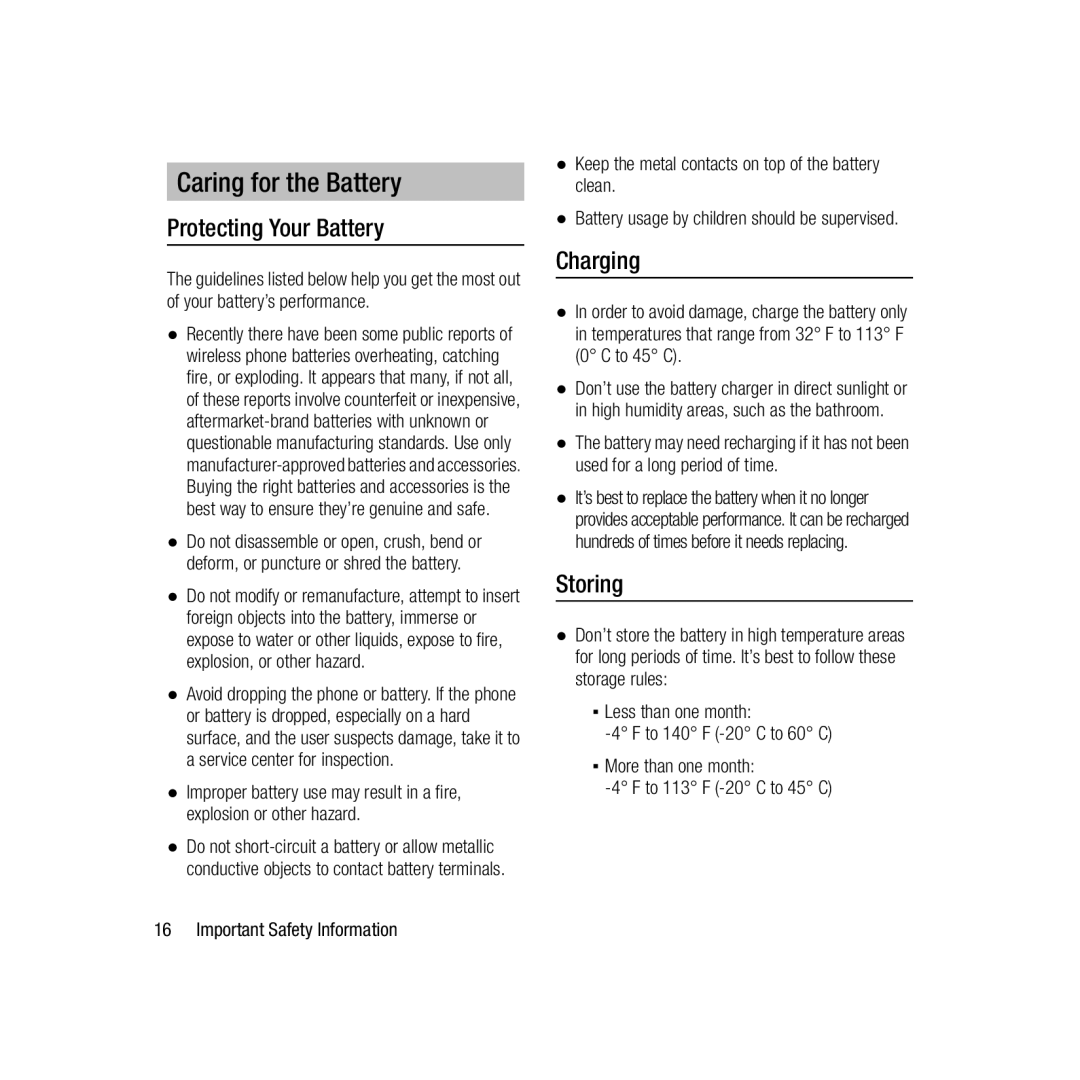
Caring for the Battery
Protecting Your Battery
The guidelines listed below help you get the most out of your battery’s performance.
ƔRecently there have been some public reports of wireless phone batteries overheating, catching fire, or exploding. It appears that many, if not all, of these reports involve counterfeit or inexpensive,
ƔDo not disassemble or open, crush, bend or deform, or puncture or shred the battery.
ƔDo not modify or remanufacture, attempt to insert foreign objects into the battery, immerse or expose to water or other liquids, expose to fire, explosion, or other hazard.
ƔAvoid dropping the phone or battery. If the phone or battery is dropped, especially on a hard surface, and the user suspects damage, take it to a service center for inspection.
ƔImproper battery use may result in a fire, explosion or other hazard.
ƔDo not
ƔKeep the metal contacts on top of the battery clean.
ƔBattery usage by children should be supervised.
Charging
ƔIn order to avoid damage, charge the battery only in temperatures that range from 32° F to 113° F (0° C to 45° C).
ƔDon’t use the battery charger in direct sunlight or in high humidity areas, such as the bathroom.
ƔThe battery may need recharging if it has not been used for a long period of time.
ƔIt’s best to replace the battery when it no longer provides acceptable performance. It can be recharged hundreds of times before it needs replacing.
Storing
ƔDon’t store the battery in high temperature areas for long periods of time. It’s best to follow these storage rules:
ƒLess than one month:
ƒMore than one month:
16 Important Safety Information
